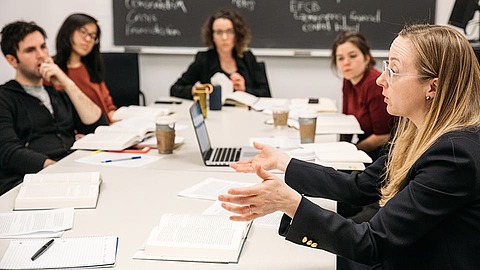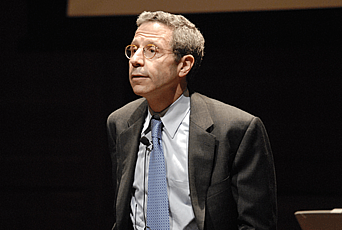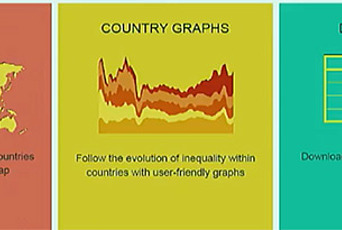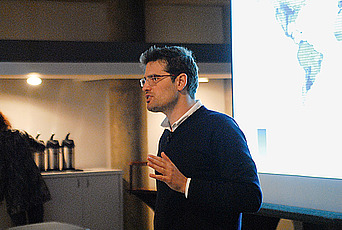In 2019–20, Julia Ott, Member in the School of Social Science and Associate Professor at the New School for Social Research, is examining the origins of venture capital as an idea, as a form of investment, and as an organized industry.
What drew you to this field initially?
Like so many other undergraduates at Princeton, the call of Wall Street beckoned to me as graduation approached. A job in finance, I thought, would afford me a glamorous life in '90s Manhattan while I saved some money for graduate school (It didn't. And I didn't.)
During my short stint in an asset management firm, I was struck by the stories that investment professionals told themselves about "how the world works" and their role in it: financial markets are efficient, shareholder value must be maximized, stock options align the interests of managers and owners, the stock market delivers financial resources to worthy corporations, everyone benefits. At this same moment, the stock market was celebrated as an agent of liberation, transformation, and progress. Remember the dot.com bubble and the Clinton Administration's flirtation with the privatization of Social Security?
Myths about venture capital stand in the way of democratic deliberation about how our society might direct the socially generated surplus of today's economy towards building a better economy for the future.
Even then, I knew enough history to distrust all these claims. And I asked myself, how did we get here? Curiosity about the interrelationship between finance, politics, and culture in the United States has motivated my work ever since. As I've pursued my own scholarship as a historian, I've endeavored to create and nurture an interdisciplinary space for inquiries into capitalism that center on questions of power, policy, and politics.
Why IAS?
The New School for Social Research, my intellectual home, shares with IAS a deep commitment to promoting and protecting independent and interdisciplinary inquiries that lie on the far horizon of human knowledge, and wisdom. In the last seven years, IAS has accepted eight NSSR faculty as members. Four—Virag Molnar, Vicki Hattam, Clara Mattei, and Deva Woodly—have played integral roles in the Robert L. Heilbroner Center for Capitalism Studies at the NSSR. This year's “Economy and Society” theme at the IAS School of Social Science resonates deeply with the work we do at our Center.
What question within your field do you most want to answer and why?
1) Why do so many Americans believe that "venture capital" is essential for economic growth and technological innovation—and that inequality is the price we must pay? 2) How did the discourse of meritocracy displace a more overt language of white supremacy in American political culture (at least for a time)? My new book project, Wealth Over Work: The Origins of Venture Capital, The Return of Inequality, and the Decline of Innovation, will demonstrate that these two stories are related fundamentally.
Where is your favorite place to think?
In a library, near a window with a good view, with other writers and book-lovers buzzing quietly and productively nearby.
What do you hope the impact of your research will be now or in the future?

Myths about venture capital stand in the way of democratic deliberation about how our society might direct the socially generated surplus of today's economy towards building a better economy for the future. Wealth Over Work draws upon history to emphasize the imperative to engage politically with questions about how new technologies arise and whom they benefit.
How do you describe your work to friends and family?
"I study, write, and teach about the history of capitalism." Most of the time, eyes glaze over and we move on to other topics. My present efforts supporting the artist collective FICTILIS on their Museum of Capitalism, however, captures and holds their attention much better!
What other activities or subject areas do you enjoy?
Art and art history, which I share with my three daughters (ages 8, 10, 13) as much as they will permit. At the moment, we're fixated on Dread Scott's Slave Rebellion Reenactment. I also enjoy competitive gardening and riding horses as fast as possible whenever possible. Both activities help me turn off the thinking in my head.



